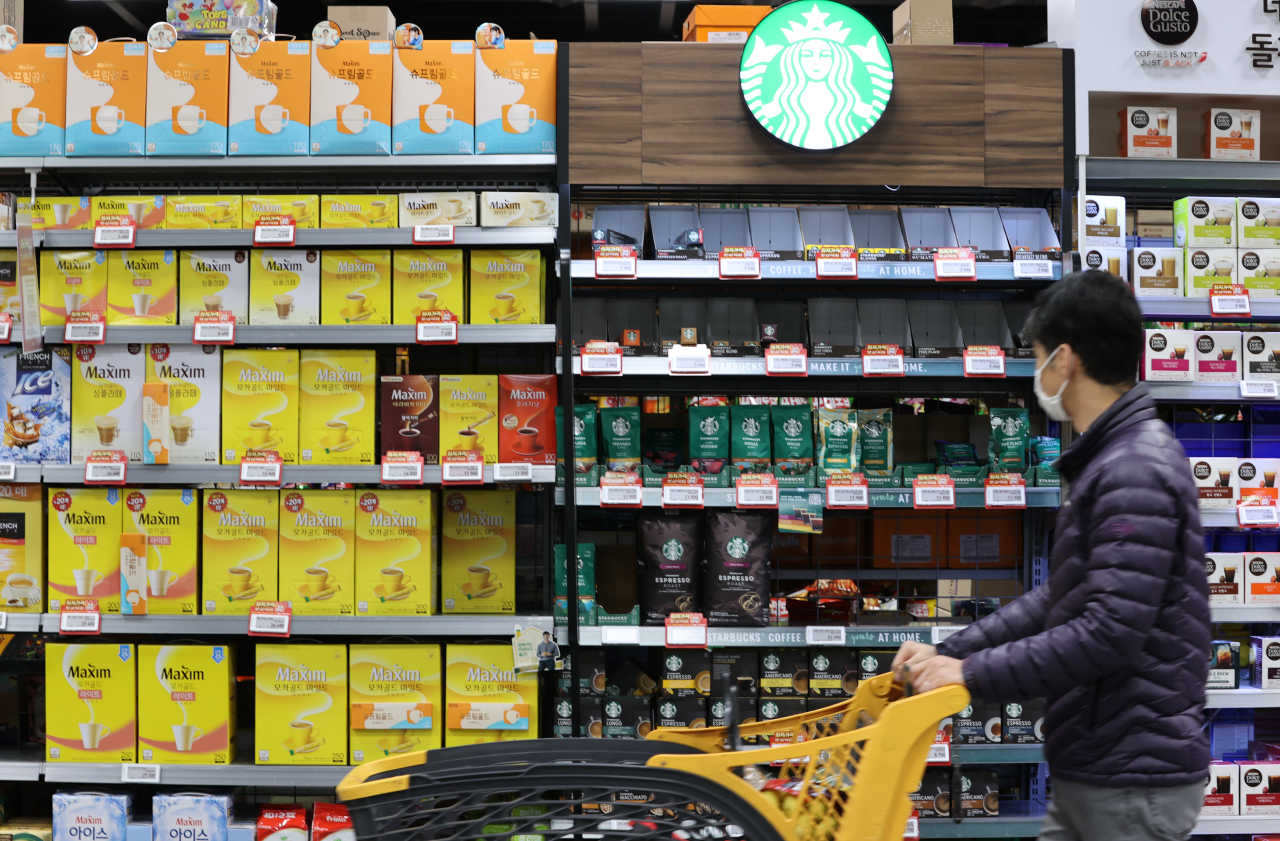 |
A shopper browses coffee products at a discount store in the city of Goyang, north of Seoul, last Sunday. (Yonhap) |
South Korea's producer prices remained almost unchanged in December as an increase of prices in the service sector was offset by falling prices of manufactured goods, central bank data showed Thursday.
The producer price index, a major barometer of consumer inflation, stood at 113.22 last month, compared with 113.23 the previous month, according to the preliminary data from the Bank of Korea (BOK).
It is the first time since October 2020 that the figure marked an on-month decline. Compared with a year earlier, however, the figure surged 9.0 percent on high energy costs.
Prices of industrial products shed 0.6 percent, dragged by a fall in prices of oil and coal products, which dipped 6.7 percent, according to the data.
But prices of agricultural and fishery products rose 5.2 percent and 1.8 percent, respectively, and the service sector, including food, accommodations and transportation, also saw its prices move up 0.3 percent, the data showed.
For 2021, the producer price index advanced 6.4 percent on-year to 109.6, the highest figure since the central bank began collecting the related data in 1965. The previous record was 106.44 logged in 2012.
The surge is attributable to high prices of energy and raw materials, as well as global supply chain disruptions, the central bank said.
Last week, BOK raised its key policy rate by a quarter percentage point to 1.25 percent following a 2.5 percentage point rate hike in the immediate previous board meeting in November.
BOK Gov. Lee Ju-yeol hinted at the possibility of more rate hikes in the coming months to ease inflationary pressure and rein in rising household debt. (Yonhap)







![[Robert Fouser] Accepting migrants in South Korea](http://res.heraldm.com/phpwas/restmb_idxmake.php?idx=644&simg=/content/image/2024/10/31/20241031050896_0.jpg)
